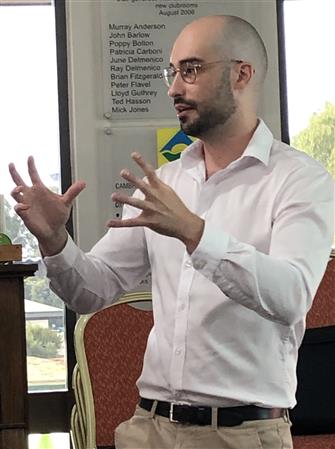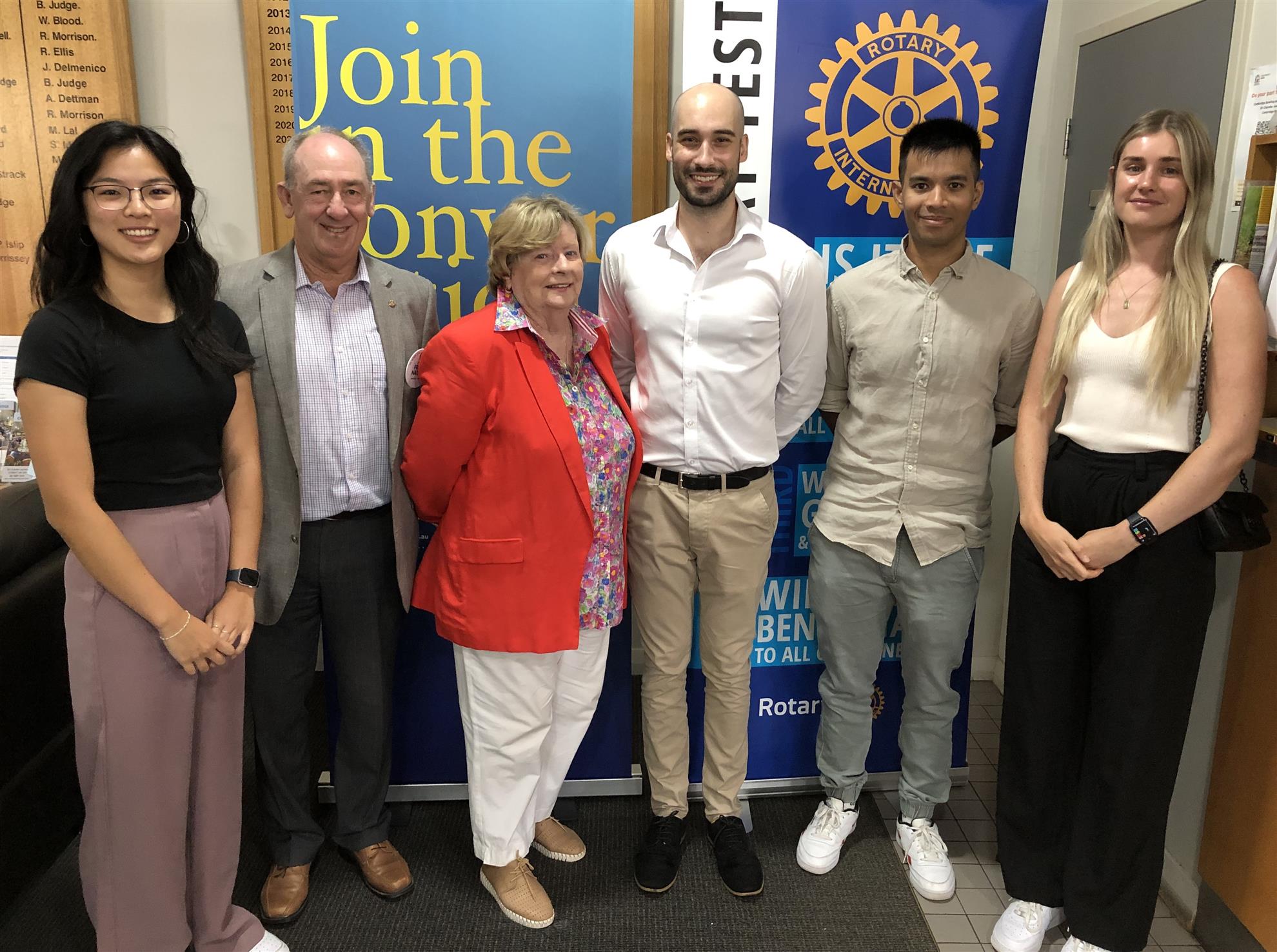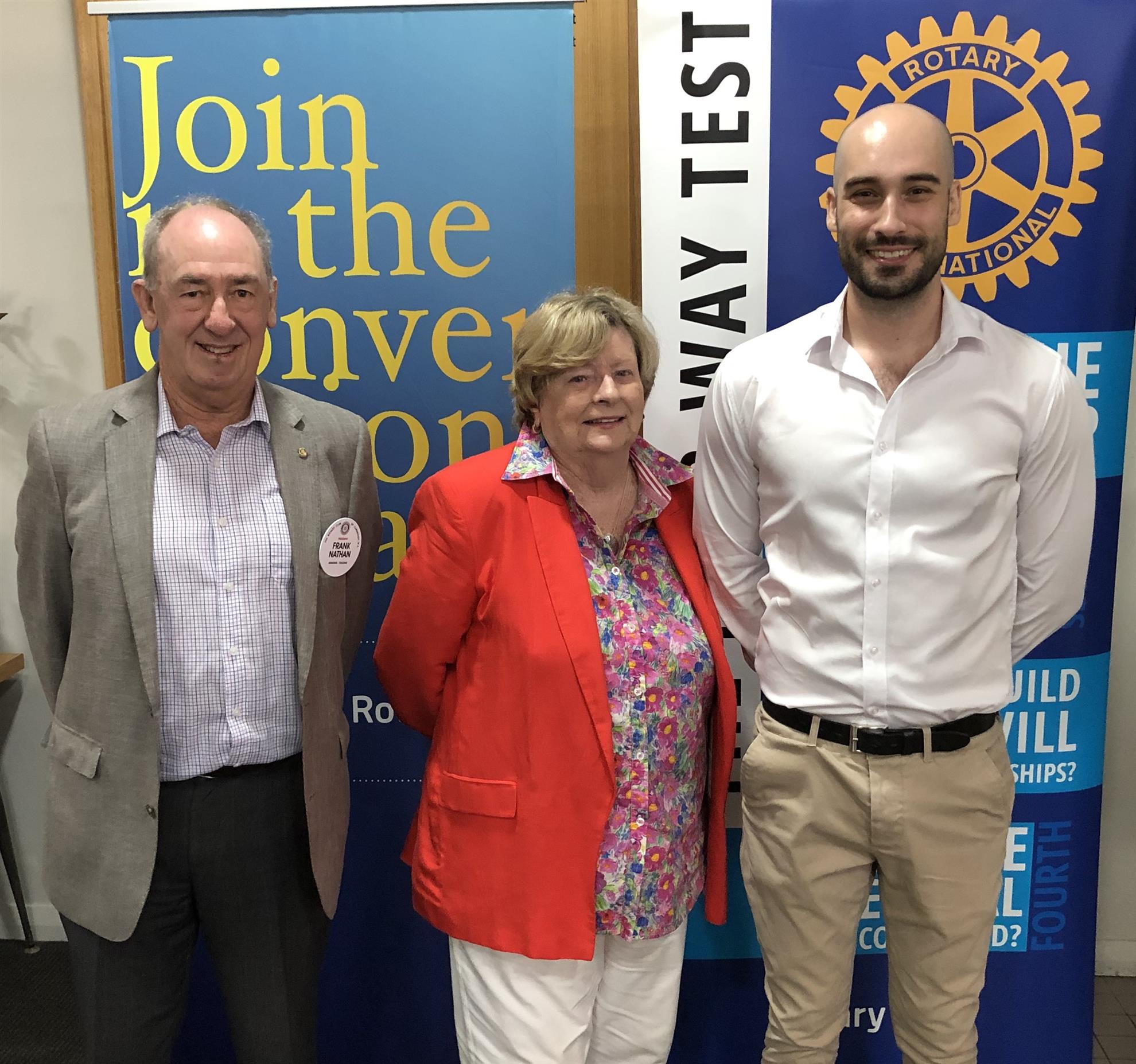

 Dr Jamie Beros of the Perron Institute was in the spotlight today, talking about brain plasticity. After providing brief details of his background Dr Beros explained that our brain controls everything that we do, and it is made up of millions of neurons which connect with each other via finger-like projections. These circuits develop from a very early time in the development of the foetus, but once established they do not remain passive; they change daily. As individuals we can learn new functions e.g. how to play the guitar effectively, and these changes are defined as plasticity. Plasticity also comes into play after events such as neurological diseases and physical injuries, but these brain changes are not always beneficial. Some adverse changes that occur in childhood may result in a lifelong deficit for the individual concerned. The question is: can we harness brain plasticity as a treatment option and will it fix everything? Unfortunately the development of treatment options may take 12 to 15 years to complete, and even then they may fail at the clinical trial stage. Jamie then told us about Repetitive Transcranial Magnetic Stimulation (rTMS) which is used as a treatment for chronic depression in cases where drugs are ineffective. The rTMS generates a magnetic field which enters the brain in a safe and tolerable way, and this results in changes which often diminish or eliminate the depression. The Institute has a number of projects under way at present, such as treating MS by repairing neurons’ fatty sheaths; strokes; youth depression; and finding ways of ageing healthily. Other methods of brain stimulation are being explored e.g. using microscope techniques and optogenetics which uses light to control certain neurons. Brains can change, and we must seek to make things better for ourselves as we age.
Dr Jamie Beros of the Perron Institute was in the spotlight today, talking about brain plasticity. After providing brief details of his background Dr Beros explained that our brain controls everything that we do, and it is made up of millions of neurons which connect with each other via finger-like projections. These circuits develop from a very early time in the development of the foetus, but once established they do not remain passive; they change daily. As individuals we can learn new functions e.g. how to play the guitar effectively, and these changes are defined as plasticity. Plasticity also comes into play after events such as neurological diseases and physical injuries, but these brain changes are not always beneficial. Some adverse changes that occur in childhood may result in a lifelong deficit for the individual concerned. The question is: can we harness brain plasticity as a treatment option and will it fix everything? Unfortunately the development of treatment options may take 12 to 15 years to complete, and even then they may fail at the clinical trial stage. Jamie then told us about Repetitive Transcranial Magnetic Stimulation (rTMS) which is used as a treatment for chronic depression in cases where drugs are ineffective. The rTMS generates a magnetic field which enters the brain in a safe and tolerable way, and this results in changes which often diminish or eliminate the depression. The Institute has a number of projects under way at present, such as treating MS by repairing neurons’ fatty sheaths; strokes; youth depression; and finding ways of ageing healthily. Other methods of brain stimulation are being explored e.g. using microscope techniques and optogenetics which uses light to control certain neurons. Brains can change, and we must seek to make things better for ourselves as we age.